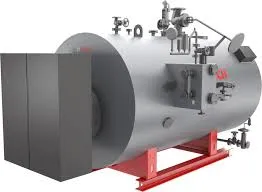
Jul . 30, 2024 02:41 Back to list
How Much You Should Expect to Pay for a New Hot Water Boiler Installation Today
The Cost of New Hot Water Boilers A Comprehensive Overview
When considering a new hot water boiler for your home or business, understanding the cost implications is crucial. A hot water boiler is an essential component for heating systems, providing hot water for heating, domestic use, and various appliances. The initial investment for a new boiler can vary widely based on several factors, including type, size, efficiency, and installation requirements.
Types of Hot Water Boilers
The first step in estimating the cost is determining the type of boiler that best fits your needs. There are several types of hot water boilers, each with its own price range
1. Conventional Boilers These are traditional systems that use a tank to store hot water. Prices typically range from $2,500 to $7,500, depending on the size and brand.
2. Combi Boilers Combining heating and hot water in a single unit, combi boilers usually cost between $3,000 and $8,000. Their compact size makes them popular for homes with limited space.
3. System Boilers These require a hot water cylinder but don’t need a separate cold water tank. They generally range from $3,500 to $6,500.
Factors Influencing Boiler Cost
The cost of the boiler itself is just one part of the total expenditure. Several factors can influence the overall price
new hot water boiler cost

1. Size and Capacity The size of the boiler required depends on your home’s heating needs. Larger homes will require bigger, more powerful units, which can significantly increase costs.
2. Efficiency Ratings High-efficiency boilers have higher upfront costs but can save money over time on energy bills. Investing in an Energy Star-rated boiler might range from $5,000 to $10,000 but can offer long-term savings.
3. Installation Costs Installation is a critical factor that can add $1,000 to $3,000 to the total price. This includes labor, any necessary modifications to your home’s plumbing and heating systems, and disposal of the old unit.
4. Location Geographic location can play a significant role in costs. In urban areas where cost of living is higher, labor and materials may come at a premium compared to rural locations.
5. Additional Features Optional features such as advanced controls, warranty extensions, and smart home integrations can also add to the total cost.
Potential Savings and Incentives
While the upfront costs can seem daunting, it's important to consider long-term savings. Energy-efficient boilers often qualify for local or federal rebates, helping to offset the purchase price. Additionally, they can lead to lower utility bills, reducing the overall cost of ownership over time.
Conclusion
In conclusion, the cost of a new hot water boiler can vary greatly based on multiple factors including type, size, efficiency, and installation. Homeowners should carefully consider their specific heating needs, evaluate boiler types, and factor in installation costs to make an informed decision. Investing in a high-quality, efficient boiler may involve a larger initial expenditure, but the benefits in performance, savings, and environmental impact can make it a worthwhile investment. By thoroughly researching options and consulting with professionals, you can find the right boiler that fits your budget and heating requirements.
-
Oil Fired Hot Water Boilers Sale - High Efficiency & Affordable
NewsJul.31,2025
-
High-Efficiency Commercial Oil Fired Steam Boiler for Industry
NewsJul.30,2025
-
High-Efficiency Biomass Fired Thermal Oil Boiler Solutions
NewsJul.30,2025
-
High Efficiency Gas Fired Thermal Oil Boiler for Industrial Heating
NewsJul.29,2025
-
High-Efficiency Gas Fired Hot Water Boiler for Sale – Reliable & Affordable
NewsJul.29,2025
-
High Efficiency Biomass Fired Hot Water Boiler for Industrial and Commercial Use
NewsJul.29,2025
Related PRODUCTS






















